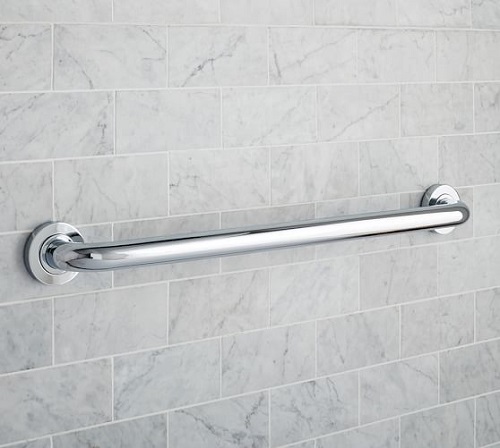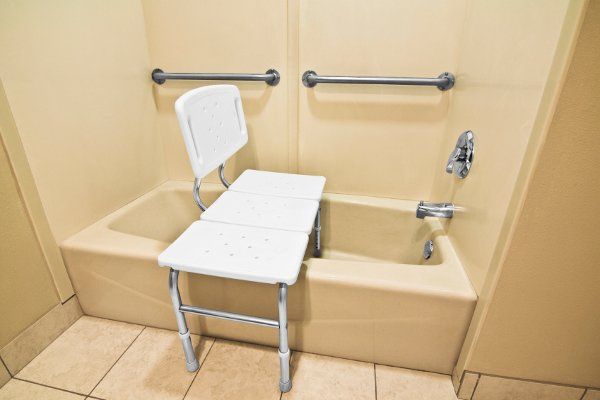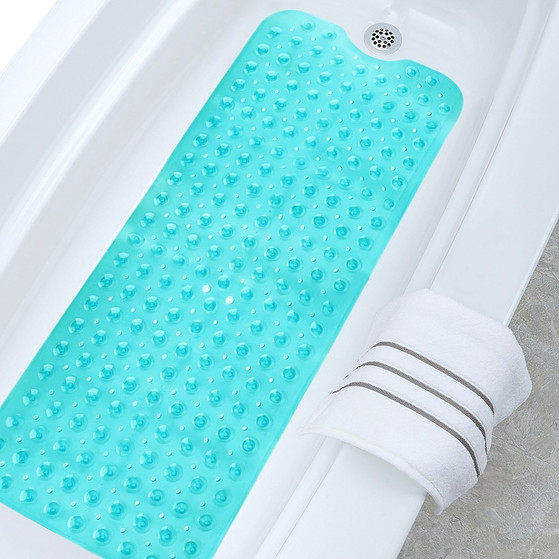Bathroom Safety Equipment Installation: Useful Senior Care Tips
By Catalogs Editorial Staff
Install simple bathroom safety equipment to keep seniors safe at home
Falls are the major cause of death and injury for older Americans and result in an estimated 27,000 deaths and seven million injuries from a total of 29 million incidents. In fact, in 2015 alone, more than one in four seniors experienced a fall. Bathrooms are among the most dangerous places in the house, but they don’t have to be. They can be modified to add bathroom safety equipment to assist the elderly in their daily needs and provide them with increased stability and mobility. These items can be installed either by a caregiver or by staff from a company that offers them.
How best to protect yourself or elderly loved ones?

Grab bars around the tub are absolutely necessary. They should be rated to hold at least 250 lbs. in weight. Grab bars should be placed outside the shower or tub where one gets out. They can also be placed by the toilet.
A U-shaped bar, for example, can be placed vertically on a wall at the tub’s foot to provide easier entry and exit. The bar should be within easy reach, close to the faucets, and run about 32 inches in length. Bars attached to walls around the tub horizontally let the person raise or lower his or her body into and out of the tub.
Many items don’t require drilling and bolting in. They have suction-cup ends that adhere to a smooth, clean, hard surface with little effort. Other options include a floor-to-ceiling pole placed about a foot and a half up from the foot of the tub within easy reach from a seated position.
Safety Chairs and Stools

Chairs and stools are needed for an existing bath or stall for showering. They come in several forms and should be paired with a hand-held shower head and hose. This feature usually contains a diverter valve so the bather can switch to it from the overhead source easily. All hot water should be controlled by a thermostat to a maximum of 120 degrees.
There are inside-the-tub chairs, with or without backs. There are also inside-to-outside transfer benches that let the person sit first, and then slide into the tub. These benches have adjustable legs so they can be made level. All seating options should come with rubber-tipped legs that make them stable.
Standard toilet seats are often too low for elders to get out of without difficulty especially for people with hip and knee pain. One can easily replace one with either an extended molded plastic seat or an adjustable one to raise the height. Some come with extender bars on either side to help the individual sit and get up with much less effort. Other bar frameworks can be added as well.
Safety Mats

Common bath mats can be tripping hazards. They can slide or become bunched up. These should be replaced with non-slip mats and strips that offer greater traction on a floor’s surface.
Bathroom Lighting
Don’t forget the lighting. A bathroom that is too dim can cause problems, especially for the visually impaired. Use the highest wattage bulbs that are safe to use for your fixtures.
You should do an inventory of the bath with an eye to several questions. Make sure that the floor is not slippery, that the faucets are easy to use, and that no appliances are plugged in when not being used. Notice whether there are dark areas. Think about the normal use of storage spaces like hampers and closets. Do they require too much bending or reaching? If so, reorganize and make adjustments. Make sure there is enough room to carry out daily tasks.
Popular Savings Offers
The National Council on Aging provides a handy guide to fall prevention for seniors online.






.png)




.jpg)